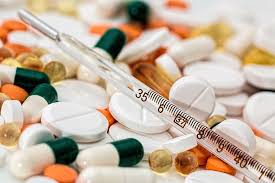In a press release on Tuesday (June 16), researchers from a large, randomized controlled trial for COVID-19 treatments announced that they’d seen an improvement in survival at 28 days after entry into the trial for the sickest patients who received the drug dexamethasone. In ventilated patients in particular, giving the steroid reduced deaths by one-third in the RECOVERY (Randomised Evaluation of COVid-19 thERapY) trial. And patients on supplemental oxygen who received dexamethasone had a 20 percent lower mortality rate than those who did not. In contrast, the press release reported no benefit of the medication in subjects who were not in need of respiratory support.
Although the results, which described the outcomes of 2,104 patients who received dexamethasone, are not yet published, their release has generated excitement. Already, hospitals in US states experiencing an increase in cases have changed their treatment guidelines to include dexamethasone, according to Reuters. Not only is the drug cheap and widely available, but the anti-inflammatory properties of the drug are a logical solution to the immune system overreaction that happens in severe COVID-19.
“It’s a very safe, generally well-tolerated—at reasonable doses—steroid that works predominantly by its anti-inflammatory effects,” says Matthew Cheng, a medical microbiologist and infectious disease physician at the McGill University Health Centre. “With regards to the press release, I was quite honestly elated. This is the first data that we have that suggests that a drug is able to improve the chances of survival in those that are critically ill, and so while I eagerly await the scientific publication I was absolutely thrilled to receive the news and to read about it yesterday,” he adds.
To be clear, the benefit of using dexamethasone is seen in the sickest hospitalized patients, says Bram Rochwerg, a critical care physician at McMaster University in Canada who was not involved in the RECOVERY trial. The drug should not be taken prophylactically or by stable outpatients with COVID-19, he adds.
“I think we were all astonished to see how effective it was,” the University of Oxford’s Richard Haynes, who is one of the leaders of the RECOVERY trial, writes in an email to The Scientist. “We tested it because we believed it could be effective, but I don’t think anyone was expecting to see quite such large effects.”
Dexamethasone is one of the glucocorticoids—a subgroup of steroid hormones also sometimes called corticosteroids—and the synthetic counterpart of the natural glucocorticoid cortisol. Cortisol, dexamethasone, and other similar molecules regulate the immune system by entering a cell’s nucleus and suppressing expression of genes that encode inflammatory cytokines and increasing expression of the gene that encodes Annexin A1, a protein that’s been shown to limit immune system overreactions.
Dexamethasone is a good glucocorticoid to use because it’s cheap—one of the cheapest drugs that is in hospitals—and very potent, says Jesús Villar, a critical care researcher at Dr. Negrín University Hospital in Spain who did not participate in the RECOVERY trial. And because the half-life of the drug is more than 36 hours, clinicians can give one intravenous dose a day, which simplifies treatment in the intensive care unit (ICU), he says…







